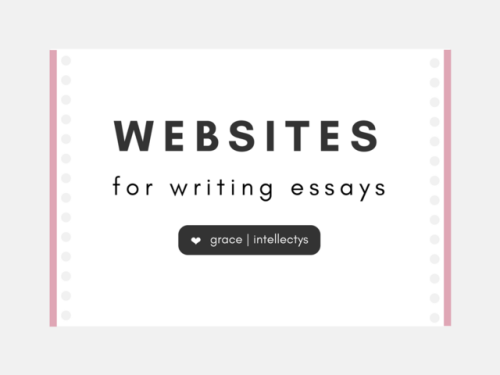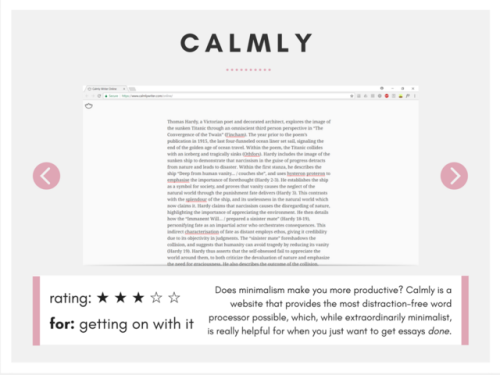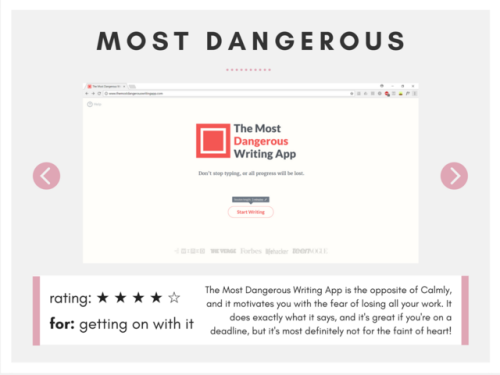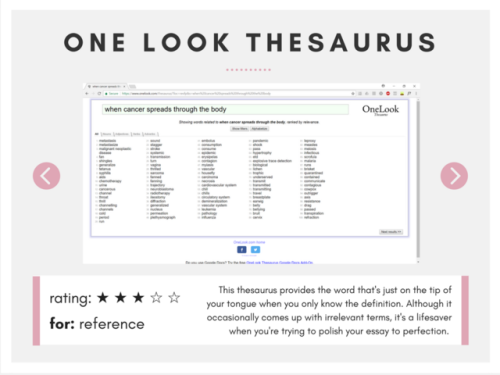A Guide To Standardized Testing By Academiix







A guide to standardized testing by academiix
differences between SAT & ACT
recommended schedule & methods for preparing
how to approach the reading & writing sections of the exam
and other tips & tricks!
graphic inspo by @eintsein
More Posts from Blmangasimp and Others
for future reference
Extended Essay Tips! (from an IB student with senioritis)
I finished my EE last week. Here are some tips that I wish I would’ve had while I was writing mine!
1. Pick a topic you’re genuinely interested in!!!
This is IMPORTANT because you’ll be doing a lot of research and writing about this topic. If you hate what you’re writing about, it will be that much harder to motivate yourself to actually get stuff done.
2. KEEP TRACK OF YOUR SOURCES
It might be annoying in the short term, but it will be so helpful in the long term when you don’t have to sort through 30 different journals and books to find one specific fact to cite.
3. Make a quality outline!
Outlining should really be the hardest part if you’re doing it right. It is so much easier to move things around and work on structure with an outline than a completed paper. Also, a thorough outline will make compiling the rest of the paper so much easier.
4. Try to start earlier rather than later
This is an obvious one, but really. Senioritis is real. SO REAL. By march of senior year you pretty much know where you’re going next (at least in the states) and doing high school stuff is really difficult motivation-wise. Start your EE early so you can have it done by the time all of your motivation to succeed leaves you.
5. 4,000 words is way less than you think it is
It sounds like a lot, but it really only leaves space for either deep explanation of one VERY specific topic, or a surface-scratch explanation of a huge topic. This is IB, so they want deep. Pick a specific topic.
6. Online libraries and databases are your friend
Google scholar?? GOOD SHIT FOR THIS PAPER. I have no idea how anybody wrote the extended essay before the internet.
7. Chunk it.
Don’t try to write this paper all at once. Break it up into small tasks and work through it that way. Not only will it make the whole process seem more manageable, but your writing will sound less frantic and your ideas will be more coherent.
8. Enjoy it!!!
We have such a cool opportunity to explore a topic that interests us and write about it! Take advantage of this! Enjoy learning about a topic that’s is fascinating for you! Take pride in your writing! Acknowledge this opportunity that so few high schoolers get to have and appreciate it. The EE can be overwhelming and stressful and scary, but at the end of the day it’s so cool and has been a super positive experience for me :)
how to start a studyblr





To all of those struggle to start a studyblr, I hope this small guide could help you in some ways. I knew that I struggled a lot at the starting point such as choosing themes, adjusting html, creating my contents and reaching to more people.
The only tip I can see is just letting yourself out there and showing your creative and helpful work to your community. Wish you all good luck!


November 17, 2020 // trying to meet journal deadlines and outline for final exams

Taking textbook notes is a chore. It’s tedious and boring and sometimes challenging, but hopefully these tips will help you improve your skill and shorten the time it takes you to do textbook notes!
Give yourself time: Realistically, you can’t knock out 30 pages of notes in 20 minutes. Take your time with textbook notes so they’re a good studying tool in the future. The general rule is to take how many pages you have to do and multiply it by 5: that’s how many minutes it’ll take you to do the notes.
Also, divide you notes up into manageable chunks to increase your productivity. I am personally a huge fan of using pomodoro timers, and I adjust the intervals for however long I need to.
Skim before you start taking notes: If time is an issue, don’t read your 40 page in depth before even picking up a pen, but make sure you know what you’re reading about by skimming a bit ahead of your notes. Read over section titles, and look at charts, maps, or graphs. Writing and highlighting as you read the chapter for the first time isn’t effective because you don’t know if a sentence will be important or not, so make sure you’re reading a paragraph or section in advance before writing.
Use the format they give you in the book to help take your notes: In a lot of textbooks, there will be a mini outline before the chapter itself that shows all the headings and subheadings. Those will be your guidelines! I find this super helpful because long chapters can be daunting to go into without any structure. If you don’t have one of those, use the headings and subheadings provided for you. If you haven’t already been doing this, it will help you so much.
Read actively: It’s so easy to “read” a textbook without digesting any information, but that is the last thing you want to do. Not only does it make taking notes a million times harder, but you’ll be lost in class discussions because you didn’t understand the reading. To keep from passively reading, highlight, underline, star any important information in the book itself.
Have a color coding system for highlighting or underlining and write down a key somewhere (here’s a few that you can adjust for your needs: x,x)
Use sticky notes or tabs to mark any questions or important points to come back to
Summarize important information and paraphrase: When taking the actual notes, don’t copy down full sentences word for word. Not only does writing full sentences waste a lot of time, it’s not an effective way to learn. If you can paraphrase the information, then you understand it. It’s also easier to study notes which are in your own words instead of textbook academia writing.
Be selective: You shouldn’t be writing down every fact that comes up in your textbook. If a fact ties into the bigger topic and provides evidence, then it’s probably something to keep, but you don’t need every piece of supplemental information (but do make sure you always write down the vocab). Learn your teacher’s testing style to help you decide what to write down. Could this be on the quiz/test? If the answer is yes, make sure you write it down.
Learn to abbreviate: Just like writing full sentences, writing out full words will waste time. Implement some shortenings (make sure to use ones that you’ll understand later!) into your notes. Some common ones are: b/c=because, gov=government, w/o=without, and here’s a great list of a ton of examples of abbreviations and shortenings.
Answer margin and review questions: A lot of textbooks have margin questions on every page or so that sum up what’s really important about that information. Make sure not to skip them because they’re really helpful for understanding. Write them down and answer them clearly in your notes. Most textbooks also have review questions after the chapter that check for reading comprehension, so make sure to answer those because they’ll show you if you really understood the chapter.
Don’t skip over visual sources: Maps, diagrams, illustrations, charts, and any other visuals in textbooks are so helpful. If you’re a visual learner, these things will be so essential to you and how you understand what you’re reading. Charts, tables, and diagrams sometimes also summarize information, so if you’re a visual learner it might benefit you to copy those down instead of writing it out.
Add visuals if it’ll help you: As said above, copying down charts, tables, illustrations, or diagrams can be super helpful for visual learners. They’re clear and concise, so pay attention to them.
Write your notes in a way that’s effective and makes sense to you: Mindmaps, Cornell notes, or plain outline notes are all really good forms of notetaking. Find which one works best for you to understand them and which one is most effective for your class, and use it (stuff on mindmaps and cornell notes).
Combine your class and textbook notes: If you rewrite your class notes, add in information you think is relevant from your textbook notes. Mark anything both your book and teacher said were important–you don’t want to forget any of that. If you don’t rewrite class notes, then put stars next to anything repeated.
I’m looking forward to the day where I can be that cliche girl that studies and gets shit done in a coffee shop or library, with my head always in a book and daydreams filling my head. Just imagine. A cup of coffee to the left, books stacked high beside you, knowing you’ve accomplished so many things, and that feeling that you’re finally getting somewhere. And you’re okay for once in your life. You’re okay.








Here’s some weapons for your essay writing arsenal!
Hemingway Editor Calmly Writer The Most Dangerous Writing App Purdue O.W.L. One Look Thesaurus JSTOR Google Scholar
Reply with your favourite or other great websites I didn’t include!
what did you write your college essays about?
all sorts of things!
common app: prompt about background/identity/interest/talent - a book my mom bought me in third grade called why do men have nipples? and how that initiated my lifelong curiosity and questioning of the things in this world and how i use poetry to answer those questions
stanford: extracurricular - feminism club (i used this essay for any college asking about an extracurricular)
stanford: intellectual vitality - my obsession with japanese pens and how it reflects my experimental/sciencey mind that i use in research
stanford: roommate - i basically kindly asked that my roommate make room for my muse, because she takes up a lot of space, and then i just talked about my muse/writing process
stanford: what matters to you and why - memes and how one particular tumblr meme reflects the importance of languages/communication
brown: why the major you chose - languages/growing up learning languages and psychology/research and its implications
brown: why brown - open curriculum, comp lit department not so eurocentric
brown: where have you lived - suburbia is boring but also grateful for good support system
brown: community - school lit mag
columbia: why columbia - columbia shp and psychology, comp lit department
columbia: why the major you chose - creative writing and psychology
cornell: why cornell - passion for languages, comp lit department, psychology, personality attachment and control lab, cornell traditions
dartmouth: When you meet someone for the first time, what do you want them to know about you, but generally don’t tell them? - this one is kinda hard to explain bc of its format but basically i wrote about creative writing, psychology, and social activism
harvard: your choice - being biracial, feeling excluded from both cultural communities, and the process of learning that i am not half of each, i am both
princeton: the prompt about culture - biracial (same as harv essay)
uchicago: how are apples and oranges supposed to be compared? - i basically just bashed wallace stevens for being pretentious, then wrote a parody of his poem “study of two pears” titled “study of not two pears, but of one apple and one orange,” then analyzed the “meaning” behind my parody poem, and continued to bash wallace stevens during the “analysis” lol
uchicago: why uchicago - i wrote about how when i visited uchicago over the summer with a friend, instead of listening to our tour guide, we spent the majority of the time running away from bees. then i wrote about how despite the bees, uchicago’s numerous redeeming qualities far outweigh the prospect of living in a beehive for the next four years. and i like talked about the comp lit department, traditions like scav, kuvia, and the latke/hamantash debate, and concluded that uchicago is hella weird and nothing like what it seems on the surface. i actually had sooo much fun with this essay hahhaha
uchicago: favorite things - i wrote about how my favorite food is ice cream and how everyone i’ve told this to always claims that ice cream is not a food and so this was a defense of “my beloved ice cream”
penn: why penn - comp lit department, kelly writers house, penn traditions
yale: why yale - ok this essay is really really bad and basically i thought i was being ~bold~ and ~gutsy~ but honestly in hindsight it just came off really rude and i don’t blame yale at all for rejecting me LOL (i took up 70 out of the 100 words talking about how the best part about yale was the singing in its music video “that’s why i chose yale,” and then i said i was kidding, and then i wrote one sentence about a literature class and a psych lab specific to yale lol rip)
yale: your choice - biracial (same as prince and harv)
macaulay honors college: of which activity do you derive the most joy - my obsession with writing and the brain and research
macaulay honors college: overcoming an obstacle - biracial essay (same as prince and yale and harv)
mit: cultural background and identity - biracial essay
mit: hobby - tumblr
mit: which program - writing department
mit: betterment of community - feminism club extracurricular essay
mit: world you come from - suburbia and how it’s boring and how at mit i will experience a new, innovative environment that’s entirely different and whatnot
mit: significant challenge - learning to love myself
i think that about covers all of my essays lol lmk if you want me to post any of them :)
i love flora


essays for days (i love this app 🌲)
I have just finished reading the handmaid’s tale

mood
me:*does no homework* me: minimalism
-
 eatinvanillapastels liked this · 1 year ago
eatinvanillapastels liked this · 1 year ago -
 blackandslayinn liked this · 2 years ago
blackandslayinn liked this · 2 years ago -
 feyrce reblogged this · 2 years ago
feyrce reblogged this · 2 years ago -
 bluealdini liked this · 2 years ago
bluealdini liked this · 2 years ago -
 serenitysva liked this · 2 years ago
serenitysva liked this · 2 years ago -
 zoejusto20 reblogged this · 2 years ago
zoejusto20 reblogged this · 2 years ago -
 ahegao-princess liked this · 3 years ago
ahegao-princess liked this · 3 years ago -
 kg003 reblogged this · 3 years ago
kg003 reblogged this · 3 years ago -
 kg003 liked this · 3 years ago
kg003 liked this · 3 years ago -
 samarie424 reblogged this · 3 years ago
samarie424 reblogged this · 3 years ago -
 hecklingfactory liked this · 3 years ago
hecklingfactory liked this · 3 years ago -
 schmidtsshit reblogged this · 3 years ago
schmidtsshit reblogged this · 3 years ago -
 ny-studies reblogged this · 3 years ago
ny-studies reblogged this · 3 years ago -
 dorkheadrae liked this · 3 years ago
dorkheadrae liked this · 3 years ago -
 cherrywine4 liked this · 3 years ago
cherrywine4 liked this · 3 years ago -
 rafa-rambles liked this · 3 years ago
rafa-rambles liked this · 3 years ago -
 theamazingadventuresofcaroline liked this · 3 years ago
theamazingadventuresofcaroline liked this · 3 years ago -
 justagirlwithblog liked this · 3 years ago
justagirlwithblog liked this · 3 years ago -
 studyhard2studyabroad reblogged this · 3 years ago
studyhard2studyabroad reblogged this · 3 years ago -
 artyzm-dla-artyzmu liked this · 3 years ago
artyzm-dla-artyzmu liked this · 3 years ago -
 birbagel liked this · 3 years ago
birbagel liked this · 3 years ago -
 studyywithmee liked this · 3 years ago
studyywithmee liked this · 3 years ago -
 starttdayynotes reblogged this · 3 years ago
starttdayynotes reblogged this · 3 years ago -
 starttdayynotes liked this · 3 years ago
starttdayynotes liked this · 3 years ago
